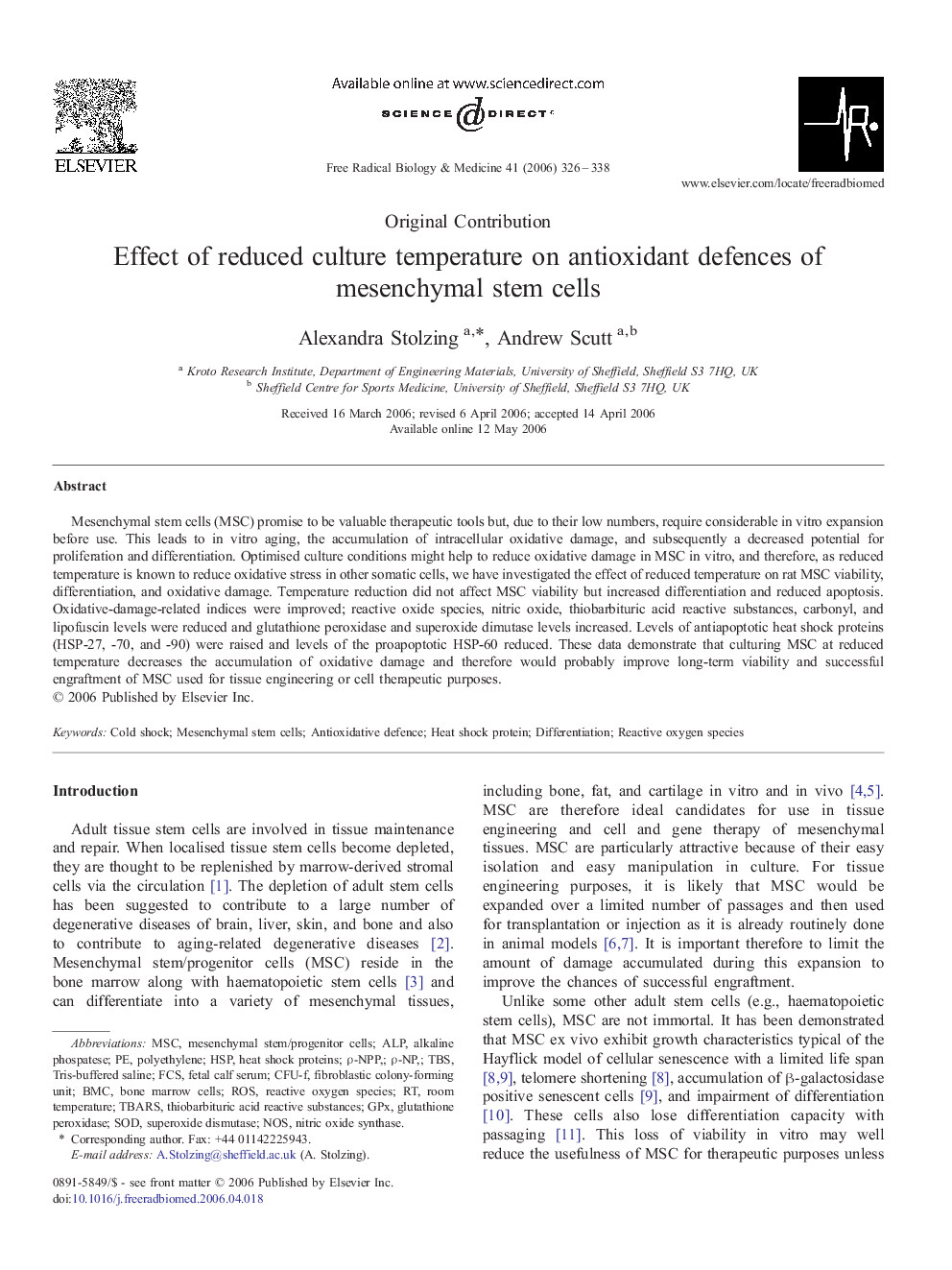| Article ID | Journal | Published Year | Pages | File Type |
|---|---|---|---|---|
| 1911524 | Free Radical Biology and Medicine | 2006 | 13 Pages |
Mesenchymal stem cells (MSC) promise to be valuable therapeutic tools but, due to their low numbers, require considerable in vitro expansion before use. This leads to in vitro aging, the accumulation of intracellular oxidative damage, and subsequently a decreased potential for proliferation and differentiation. Optimised culture conditions might help to reduce oxidative damage in MSC in vitro, and therefore, as reduced temperature is known to reduce oxidative stress in other somatic cells, we have investigated the effect of reduced temperature on rat MSC viability, differentiation, and oxidative damage. Temperature reduction did not affect MSC viability but increased differentiation and reduced apoptosis. Oxidative-damage-related indices were improved; reactive oxide species, nitric oxide, thiobarbituric acid reactive substances, carbonyl, and lipofuscin levels were reduced and glutathione peroxidase and superoxide dimutase levels increased. Levels of antiapoptotic heat shock proteins (HSP-27, -70, and -90) were raised and levels of the proapoptotic HSP-60 reduced. These data demonstrate that culturing MSC at reduced temperature decreases the accumulation of oxidative damage and therefore would probably improve long-term viability and successful engraftment of MSC used for tissue engineering or cell therapeutic purposes.
